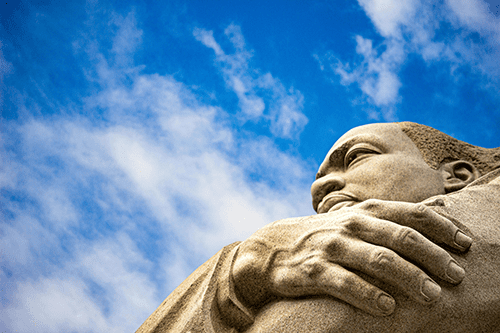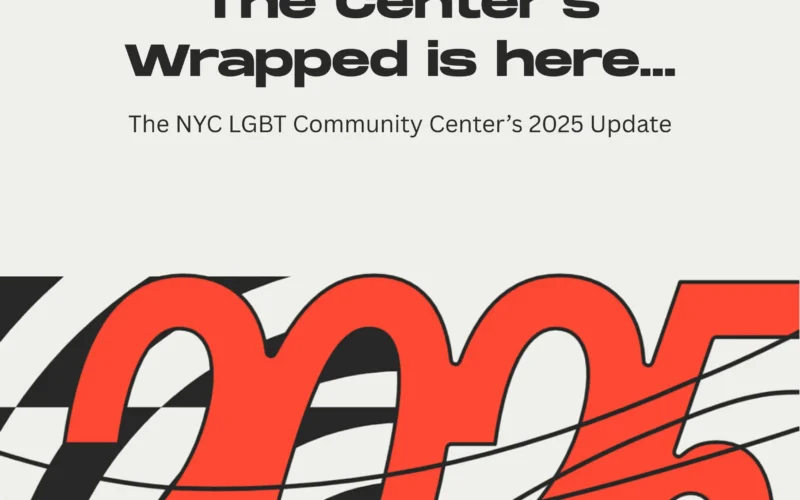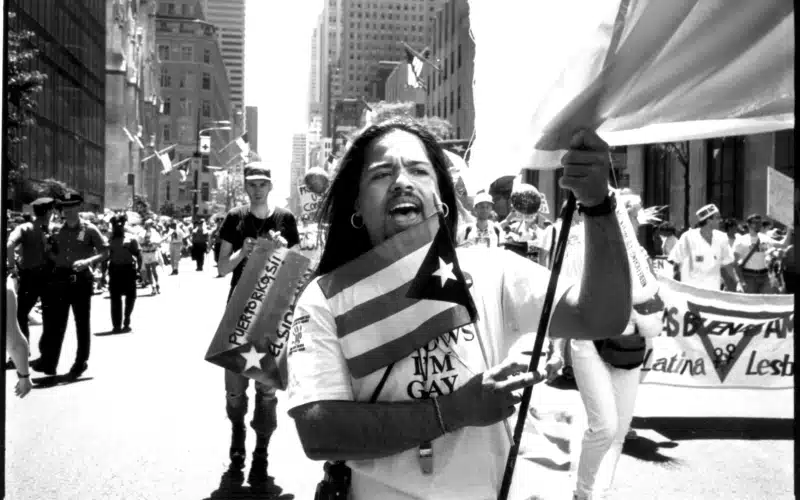5 Holiday Tips for LGBTQ+ People in Recovery
By Antonio Ruberto, Jr.
Close
By Antonio Ruberto, Jr.

The winter holiday season can be tough for LGBTQ+ people, but it doesn’t affect everyone in our community the same way. The strain of a forced family reunion, or the loneliness of facing a festive time alone, is compounded for queer folks who struggle with substance use, which many of us do. Recent data shows that LGBTQ+ adults have higher rates of alcohol use disorders, as well as higher rates of opioid, meth, and prescription painkiller use, and trans & gender nonconforming adults have significantly higher prevalence of nicotine, alcohol, and drug substance use disorder diagnoses. This is reflected among LGBTQ+ and trans young people as well.
At NYC’s LGBT Community Center, we see firsthand how this time of year creates challenges for queer folks in recovery. Demand increases following the holidays for both our substance use recovery program and 12-step groups within our building. “Nostalgia and romanticism play a big part in this,” explains Gabriel G Torres, an artist and a participant in The Center’s recovery program. “I have friends who, when they think about Christmas, think about their families, how much fun they had, gifts they got—but what if their experience was the opposite? What if your relationships during the holidays always ended up in a conflict because you had to deal with your family, who never understood you?”
A key issue at the core of these challenges is a sense of isolation—whether it stems from literal solitude, or from being misunderstood, othered, or unsupported by those around you. That means that leaning on your chosen family, expressing your needs, setting strong boundaries, and taking steps to keep your support network close at hand, can be vital. Here are 5 tips to help you create a plan so that your holidays can be as safe, connected, and affirming as possible.
Your chosen family is a great source of strength and affirmation for both your identity and your recovery journey. “The opposite of addiction is relationships,” says Torres. “Learn what are the best mechanisms for you to keep your relationships. Sometimes we think it’s an all or nothing thing, but sometimes it’s just a call. Sometimes it’s just ‘I hope you have a good day.’ That can both give you the energy to feel that you have worth inside of your community, but also let somebody know that you’re there.”
Supportive loved ones are sometimes our best allies, so don’t be afraid to ask for specific actions from them. For example, if you’re attending a holiday event with a friend or partner, talk in advance about their role and what you may need. You can even role play—if that one cousin just won’t stop using transphobic language, what do you think you’ll need in that moment? How can your friend call that cousin in, or help you get out of the conversation?
Making a sober plan is a great way to keep you connected and accountable. A therapist, counselor, and/or sponsor can help you create a plan that’s specific to your experience, and it doesn’t need to be overly complicated. It can be as straightforward as checking in with another sober person at a time that you both agree upon, such as scheduling a call right before or after a family dinner, when you’re likely to be navigating tense conversations or alcohol might be offered.
Beyond just one scheduled check-in, it can help to line up multiple options for connecting with your support network from afar, especially if you’re traveling. Make sure you have virtual meeting links saved for your 12-step or treatment program, if that is what you use, or even just write down a list of people to call at a moment’s notice if you’re feeling triggered.
When it comes to our LGBTQ+ identities and relationship with substances, well-meaning misunderstanding can be equally as triggering as outright hostility. One way to address this is to set boundaries on your time and space, so that you have a safe place to retreat. There may be a variety of ways to do this based on your particular situation—whether it’s requesting a private room while you’re staying in another person’s home, or blocking off a certain hour every day to meditate, watch TV, exercise, or read by yourself.
Additionally, if you are returning home for the holidays, consider whether you need to have a conversation with anyone back home about your recovery situation. Torres shares, “I make sure I’m in an environment where people understand that I’m not consuming alcohol, or that it is very limited. It can be difficult, but it truly helps because if you let people know what you’re going through…they can be receptive.” This conversation is especially important to have before you get to your destination! Trying to refuse an offered substance in the moment can be harder because it’s an unexpected choice point. If your boundaries related to substance use are clear to others from the get-go, you’re more likely to avoid a potentially triggering offer altogether.
Most importantly, no matter where you are, give yourself permission to put an end to relationships that jeopardize your mental and physical health or safety. For Torres, it’s a matter of “deciding who I can deal with and not, and whether I’m in a space in my mind to grieve or close a relationship or have that last conversation with somebody.” Amidst holiday traditions of getting together with larger family groups or returning to our home towns, we’re more likely to see people from our past that are incapable of accepting our queerness or our needs around substance use—but maintaining ties with intolerant people can do more harm than good. “There’s something about the end of the year that makes you think of new beginnings, but there are also some things that we can end,” Torres adds.
Being alone during the holidays is a situation many of us encounter if our families refuse to accept our LGBTQ+ identities, and it can be a powerful trigger.
It’s important to think in advance about certain days that tend to be especially emotional, such as New Year’s and religious holidays, and create a plan so that you’re not all by yourself in those moments. “Go into places where you can be in community with people who understand you,” suggests Torres. “Go to queer theatre shows, Christmas drag shows, go volunteering. Aiding somebody else sometimes teaches you a lot about aiding yourself.” You could also join a local queer substance use support group or event specifically scheduled for those days. Here in New York, for example, The Center’s community-run 12-step meetings see especially high attendance on New Year’s and Christmas, and other organizations such as Big Vision and Gay & Sober arrange sober gatherings throughout the holiday season.
This is another instance where it is, of course, quite effective to call or text people who support you, such as your counselor, sponsor, partner, or friend. Torres shares, “Any time that I’m feeling really lonely, I have a list of people that I call. I can be walking on my own, but just having a conversation makes me feel connected to somebody else.” And at the very least, even just leaving your home and being among other people (at the movies, parks, shopping centers, museums…) can be enough to stave off the loneliness that often triggers the itch to use.
Acknowledging the obstacles on our horizon is exhausting, but it can also be clarifying and motivating. For those of us in the LGBTQ+ community who struggle with substance use, it’s crucial to raise more awareness of the steeper challenges we face during this time of year and talk about how we can overcome them. This chips away at stigma and isolation, helps our loved ones understand what we’re going through, and equips us to take better care of ourselves and each other.



Post
The Center Revamps Cycle for the Cause Amid Federal Funding Cuts and Growing Needs Within the LGBTQ+ Community
The Center Revamps Cycle for the Cause Amid Federal Funding Cuts and Growing Needs Within the LGBTQ+ Community